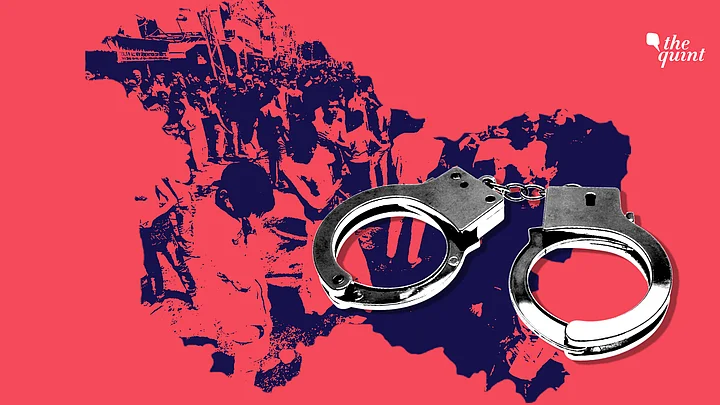“When we cry, we don’t know if we are crying for Imam Hussain or if we are crying at our own suffering,” says Raza Hasnain, a resident of Kargil.
Every year, Shias mourn the martyrdom of Imam Hussain and his companions at Karbala during the month of Muharram. However, this year, Shias in Kargil say that the bifurcation of Jammu and Kashmir as well as the detention of several people has exacerbated their grief in the month of mourning.
Pain of Kargil
The predominantly Shia region of Kargil is now a part of the new Union Territory of Ladakh, which has been carved out of after the Jammu and Kashmir Reorganisation Act was passed in the Parliament in August.
The Shias of Kargil fear that in the Union Territory, they might end up being subordinated to the Buddhist-dominated Leh.
“We feel uprooted. We are deeply attached to our brethren in Kashmir. The new arrangement is not acceptable to us,” Hasnain says.
When the government announced its decision to scrap Jammu and Kashmir’s special status and bifurcate the state into two Union Territories, Kargil was placed under lockdown and several people were detained.
Even though the restrictions have eased, fear and pain prevail. Locals in Kargil say that they have never experienced a crackdown such as the one to which they were recently subjected.
According to activist Sajjad Hussain Kargili, who also contested the 2019 Lok Sabha elections as an Independent, there have been “mass detentions” in Kargil as the people are opposed to the abrogation of Article 370 and the bifurcation of Jammu and Kashmir.
This sentiment is shared by the Shias of Kashmir.
‘Every Day Is Ashura’
“Every day has been like Ashura for us. Every area has become Karbala,” says Ehsan* (name changed), a resident of Zadibal in Srinagar, referring to the mass detentions that have taken place in Kashmir.
While the restrictions have made it difficult for people to hold gatherings to mourn the tragedy of Karbala, gatherings do take place, and are heavily weighed down by the grief of the lockdown and detentions. Often, the tragedy of Karbala is compared to the continuing ordeal of the people of Kashmir.
“We have been locked down for over a month now. People have been arrested but we don’t know where they are. People are dying as we can’t get medical aid in time. If this is not zulm (oppression) then what is?” said Javed Hussain*, another resident of Srinagar.
The same pain can be sensed in the Shia residents of Budgam as well.
“People have been detained without reason. When we ask the authorities about it, they shoo us away. This has added to our pain,” said Baqer, a resident of Budgam.
‘No Difference Between Shias and Sunnis’
Most Shias that The Quint spoke to found the suggestion of a sectarian split within Kashmiris “highly insulting”.
“We keep hearing non-Kashmiris tell us that it is only Sunnis who have a problem with New Delhi’s policies. This is insulting. Do Shias not suffer when the entire Kashmir is made into a prison? Do Shias not get blinded by pellets? Are Shias not being detained? These are nothing but an effort to divide us,” says Javed Hussain.
The resentment among Shias has been, in part, bred from the fact that key community leaders, both pro-India and separatist, have been detained by security forces, including Jammu and Kashmir Shia Association President Imran Raza Ansari, who is with Sajad Lone’s People’s Conference, as well as separatists like Moulvi Abbas Ansari, who heads the Ittehadul Muslimeen, and Agha Syed Hassan Alsafavi of Jammu and Kashmir Anjuman-e-Sharie Shian.
While the Ansaris hold sway among the Shias of Srinagar, the Alsafavi family has dominated the political and the social affairs of the Shias of Budgam.
Among Shias, clerics play a more central role than among Sunnis, and their detention has left the community rudderless on political as well as on social matters, like marriages.
‘Muharram Never Ended for Kashmiris’
The tragedy of Karbala has become a key motif for Kashmiris to articulate their suffering.
“During Muharram, our prayer is that we are afflicted with no other grief except the grief of Imam Hussain’s martyrdom. But this is not a luxury we have. Many of us are overcome by the grief of what is happening around us,” said Baqer.
Commenting on the suffering of Kashmiris, author Mirza Waheed tweeted: “For thousands of families in Kashmir, Muharram never ended.”
Waheed’s books like Collaborator and Book of Gold Leaves which are based in Kashmir, have central Shia characters and he often compares Kashmir to Karbala to depict the pathos in the Valley.
“Kashmir today, then, is Karbala more than ever. In its grief, in its vast tragedy and in its lonely but resolute defiance...” he added.
Before Waheed, iconic American-Kashmiri poet Agha Shahid Ali also compared Kashmir to Karbala in Karbala: A History of the House of Sorrow’. He wrote:
“Summer 1992 – when for two years Death had turned every day in Kashmir into some family's Karbala.”
While the Ashura procession is unlikely to be held in Kashmir on Muharram, the restrictions and detentions may continue further. The suffering of Kashmiris may not end soon.
(At The Quint, we question everything. Play an active role in shaping our journalism by becoming a member today.)
